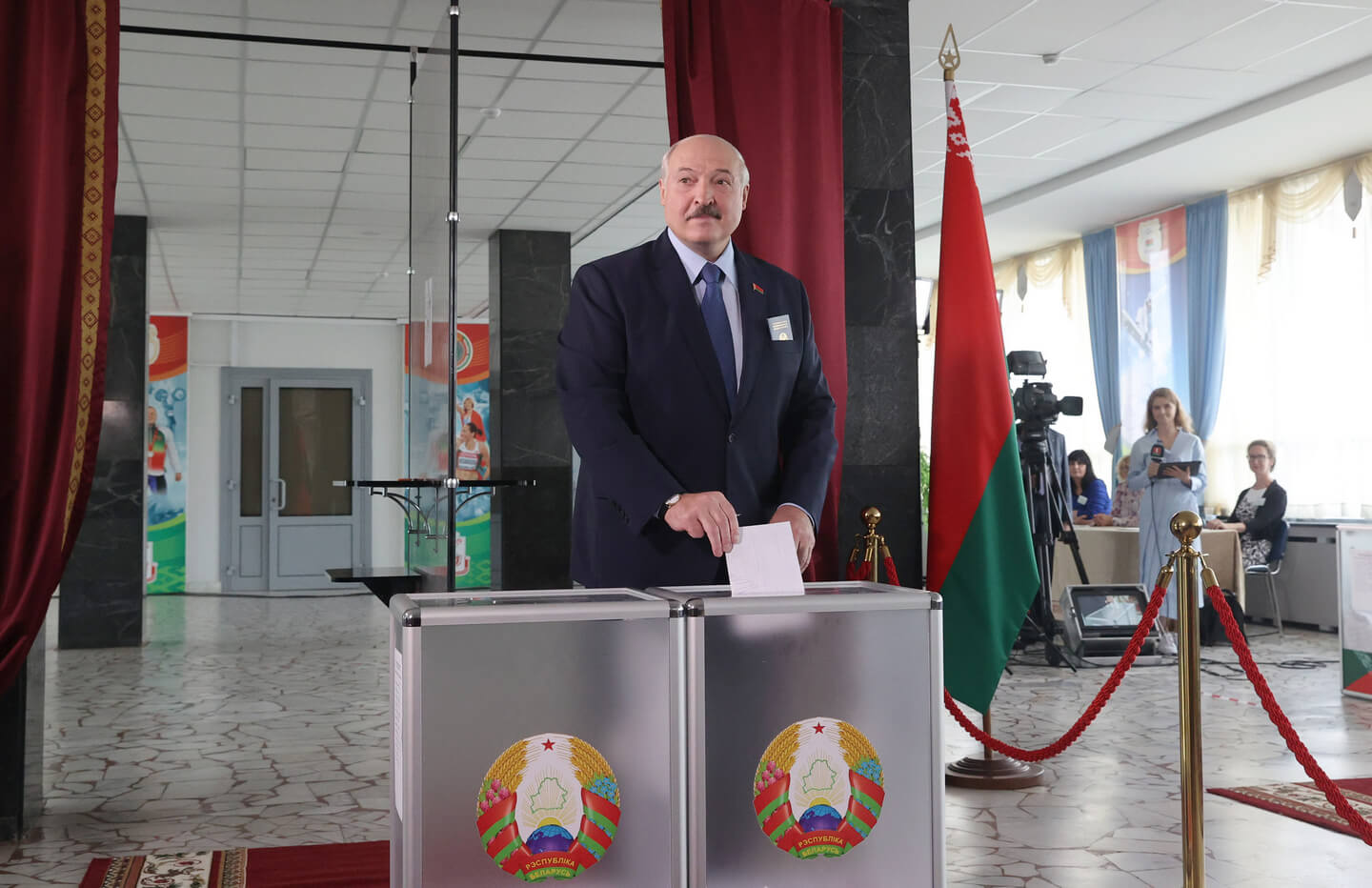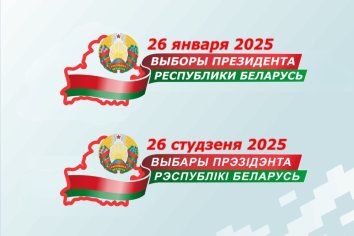The House of Representatives has set Belarus’ presidential election for January 26, nearly six months before the end of Alaksandar Łukašenka’s term. Although the Belarusian ruler was in Russia’s Kazan at the time, he personally selected the date.

His re-election campaign is in full swing as he increases informal visits to villages and small towns, aiming to give the campaign a more personal and down-to-earth feel. He has also held several meetings with youth and students.
Meanwhile, the government has launched a “Unity Marathon,” a series of concerts and rallies across the country designed to rally support for the incumbent. A themed concert in Maładziečna, Minsk region, on October 12 featured Łukašenka’s youngest child playing the piano.
Fear of opposition
The psychological trauma Łukašenka experienced when he narrowly escaped ouster in 2020 has undoubtedly influenced his decision to expedite the election.
Although his security forces have suppressed unrest, he remains wary of his opponents. Just a few weeks ago, he advised his officials to remain vigilant. “Don’t you think that we, as some people say, have purged everything here? Those who should have been purged have run away. That is their right of choice; they fled. But you should not relax,” he stated in late September.
He hopes to turn the page on the disputed 2020 vote, expecting the West to resign itself to his rule and cease support for his exiled opponents, led by former presidential candidate Śviatłana Cichanoŭskaja.
He likely chose winter, reasoning that it would be more challenging for opponents to stage protests during the cold season.
Economy
This decision may also be linked to economic factors.
He rushed to hold the election as the economy grows at an impressive rate, benefiting from Russian war-related orders and sales in Russia. However, he understands that the war may end soon, potentially slowing down growth. He is also concerned about competition from Chinese producers in Russia.
Despite the growth, independent economists have warned of risks associated with overheating and the possible repercussions of stringent price controls.
Ukraine peace talks
The Belarusian leader has repeatedly expressed a desire to participate in potential Ukraine peace talks to further Belarus’ interests. He would prefer to sit at the negotiating table as a “president” elected in a “clean” election rather than through a disputed vote.
Moreover, the war is unpredictable. Łukašenka may be concerned that Ukraine could eventually retaliate against Belarus for supporting Russian forces, for instance with fuel, so he would like to hold the election under peaceful conditions.
It is also worth noting that Belarus and Russia plan to conduct large-scale military maneuvers, Zapad-2025, next year. The location of the exercise and the number of troops involved have yet to be determined.
Russia attacked Kyiv in February 2022 immediately after a similar exercise in Belarus.
Health
Łukašenka’s health has been the subject of speculation due to the secrecy surrounding his condition. As he ages, he may have decided to accelerate the political process.
Time is not on his side, which gives hope to his opponents. They anticipate a window of opportunity to open following his departure.
